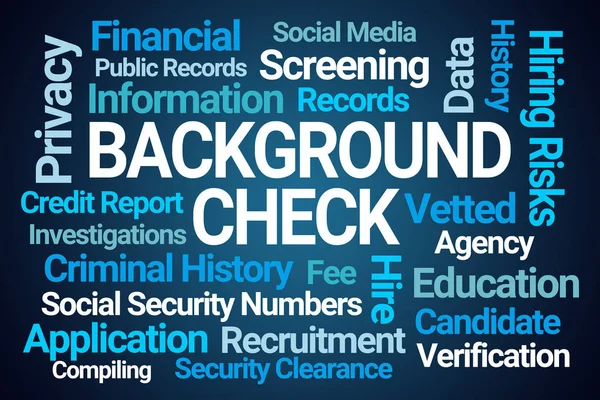When it comes to hiring new employees, conducting criminal background checks has become increasingly common. In Texas, employers have the right to run a background check on prospective employees. This ensures they are making a safe and responsible hiring decision. As a business owner or hiring manager, it’s crucial to run background checks in the state of Texas. Failing to do so can result in serious legal consequences. In this article, we’ll take a closer look at the ins and outs of criminal background checks in Texas. We’ll include what employers can and cannot do when it comes to screening potential hires. So, whether you’re a business owner or an employee, read on to learn more about criminal background checks in Texas. Discover how they can impact your career.
Why are criminal background checks important in Texas?
Criminal background checks are important for employers in Texas for several reasons. Firstly, it helps ensure that the hiring process is fair. All job applicants are given equal consideration. Secondly, it helps employers make informed decisions about potential hires. This is especially true when the job requires a high level of trust or security clearance.
Moreover, some industries require background checks by law. For example, companies in the healthcare industry are required to conduct criminal background checks on all employees and volunteers. This also includes contractors who have access to confidential or sensitive information. Similarly, financial institutions like banks and credit unions require background checks. This is part of their compliance obligations.
Overall, criminal background checks are an essential part of the hiring process in Texas. They provide employers with valuable information that helps them make informed decisions about potential hires.
Types of criminal background checks available in Texas
Employers in Texas have several options when it comes to conducting criminal background checks. The most common types of background checks include:
- County background checks: This type of check involves reviewing criminal records at the county level where the applicant currently lives or has lived in the past.
- State background checks: This type of check involves reviewing criminal records at the state level. It provides a broader scope of information than county-level checks, as it includes records from all counties within the state.
- National background checks: This type of check involves reviewing criminal records at the federal level. It provides the broadest scope of information, including records from all states and territories within the United States.
- FBI fingerprint checks: This type of check involves submitting the applicant’s fingerprints to the Federal Bureau of Investigation (FBI) for review. It provides the most accurate and comprehensive information, but it is also the most expensive and time-consuming option.
Employers can choose one or more of these options. Their choice depends on their specific needs and the requirements of the job.
How to obtain a criminal background check in Texas
In Texas, criminal background checks can be obtained through several sources, including:
- Texas Department of Public Safety (DPS): The DPS provides criminal records checks for individuals and employers. The applicant can request a copy of their own criminal record, while employers can request a criminal record check for potential hires.
- County clerk’s office: Employers can also obtain criminal records checks from the county clerk’s office where the applicant currently lives or has lived in the past.
- Third-party background check companies: Many employers choose to use third-party background check companies to conduct criminal background checks. These companies specialize in conducting comprehensive background checks and can provide employers with a detailed report of the applicant’s criminal history.
It’s important to note that employers must obtain written consent from the applicant before conducting a background check. Additionally, employers must follow the guidelines set forth by the Fair Credit Reporting Act (FCRA) when conducting background checks.
Understanding criminal records in Texas
Criminal records in Texas are maintained by the Texas Department of Public Safety (DPS). The DPS maintains a central repository of all criminal records in the state. This includes records from all counties within Texas.
Criminal records in Texas are public information and can be accessed by anyone. However, certain restrictions apply, and some criminal records may be sealed or expunged, depending on the circumstances.
Employers should be aware that not all criminal records are equal. Some criminal offenses are minor, while others are more serious. Employers should carefully review an applicant’s criminal record to determine if it is relevant to the job they are applying for.
Limitations and restrictions of background checks in Texas
While criminal background checks are an essential part of the hiring process in Texas, there are limitations and restrictions. These define what employers can and cannot do when conducting background checks.
For example, employers cannot discriminate against potential hires based on their criminal history. This is unless the offense is directly related to the job they are applying for. Additionally, employers must follow the guidelines set forth by the FCRA when conducting background checks. Failure to do so can result in serious legal consequences.
It’s important for employers to understand the limitations and restrictions that govern criminal background checks in Texas to ensure they are conducting background checks in a legal and ethical manner.
FCRA compliance for employers conducting background checks in Texas
The Fair Credit Reporting Act (FCRA) is a federal law. It governs the use of consumer reports, including background checks, by employers. Under the FCRA, employers must follow specific guidelines when conducting background checks. These include:
- Obtaining written consent from the applicant before conducting a background check
- Providing the applicant with a copy of the background check report
- Giving the applicant the opportunity to dispute any inaccuracies in the report
- Notifying the applicant if any adverse action is taken based on the background check report
Employers must also ensure that the third-party background check company they use is FCRA compliant.
Common mistakes to avoid when conducting criminal background checks in Texas
Conducting background checks in Texas can be complex and confusing, and employers must take care to avoid common mistakes that can result in legal consequences. Some common mistakes to avoid when conducting background checks in Texas include:
- Failing to obtain written consent from the applicant before conducting a background check
- Ignoring the limitations and restrictions that govern background checks in Texas
- Using outdated or inaccurate information in the background check report
- Failing to notify the applicant if any adverse action is taken based on the background check report
Employers should also ensure they are using a reputable third-party background check company. The company should be FCRA compliant.
Conclusion: The importance of criminal background checks in Texas and the best practices for conducting them.
In conclusion, criminal background checks are an essential part of the hiring process in Texas. They provide employers with valuable information that helps them make informed decisions about potential hires. However, employers must follow the legal and ethical guidelines that govern criminal background checks in Texas. This avoids legal consequences.
To conduct background checks in a legal and ethical manner, employers should obtain written consent from the applicant. They should use reputable third-party background check companies. Following the guidelines set forth by the FCRA is also crucial. By doing so, employers can ensure they are making safe and responsible hiring decisions. They also protect themselves from potential legal liabilities.




